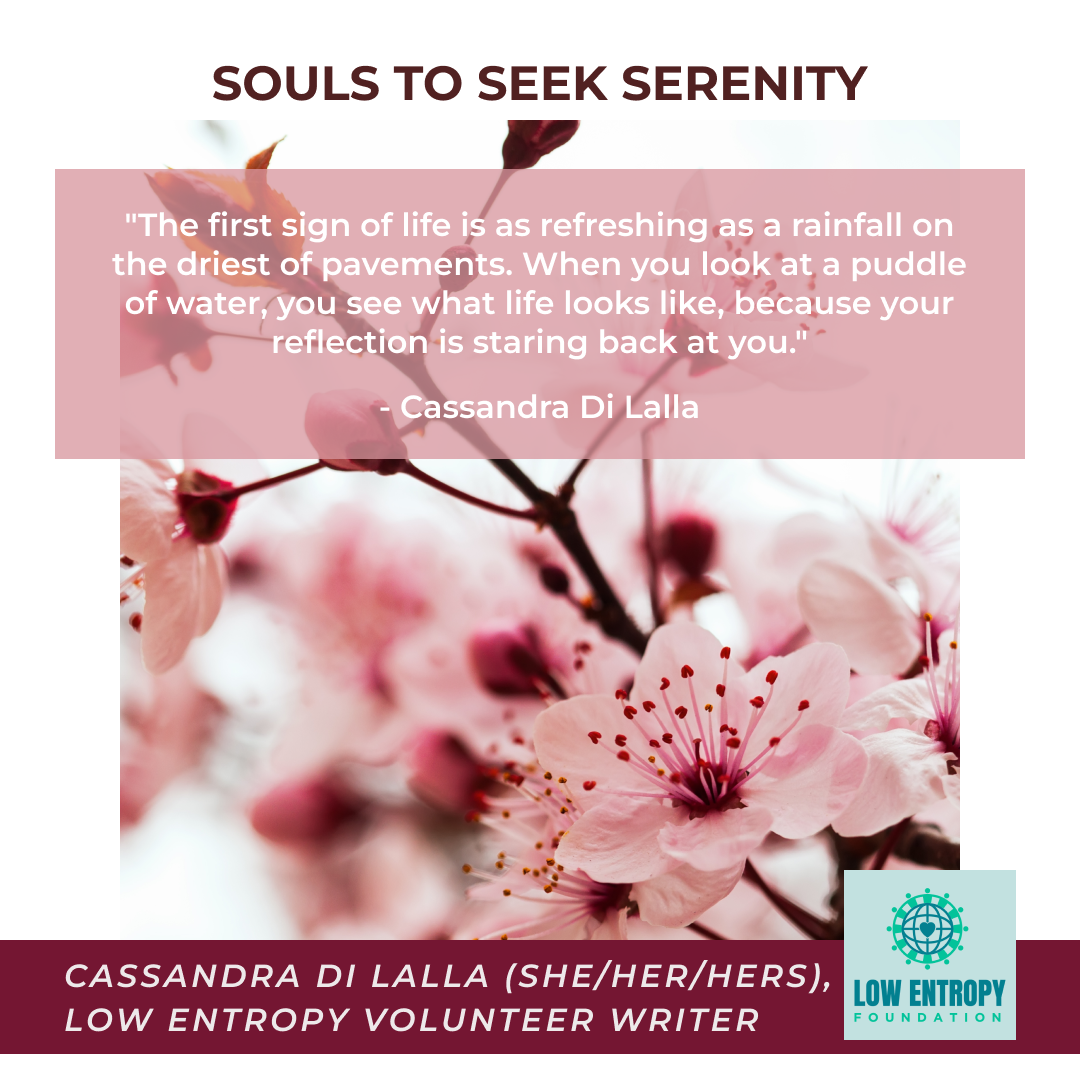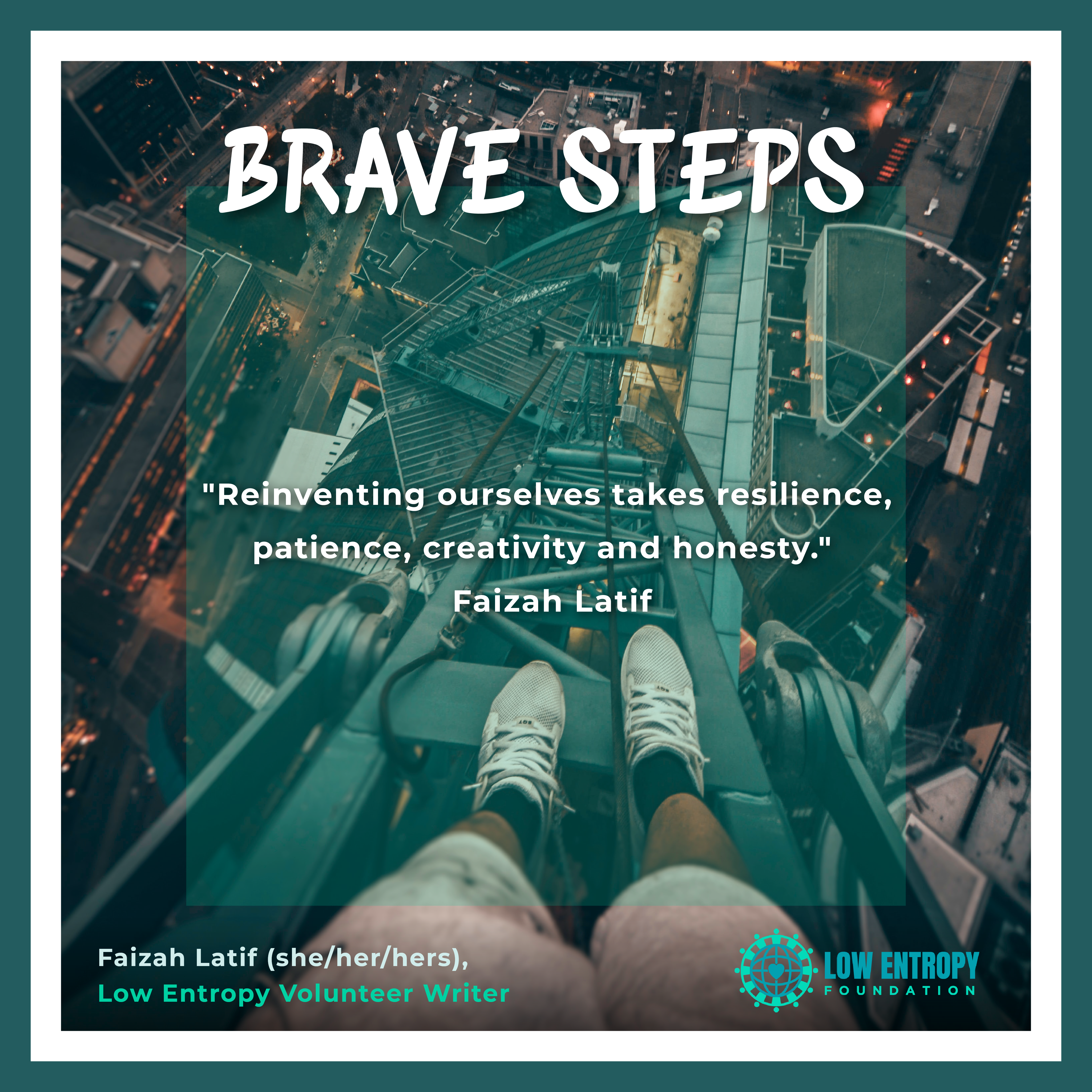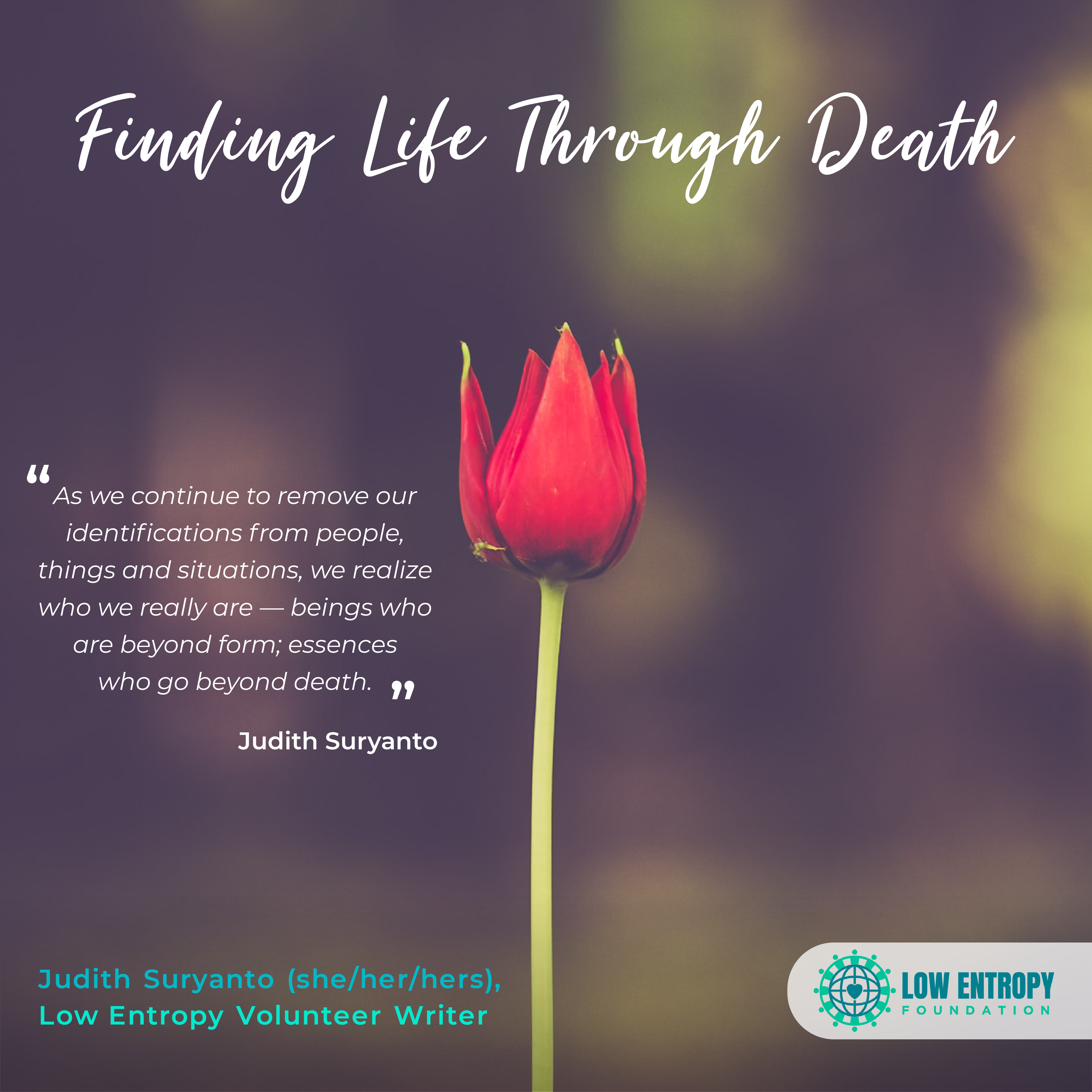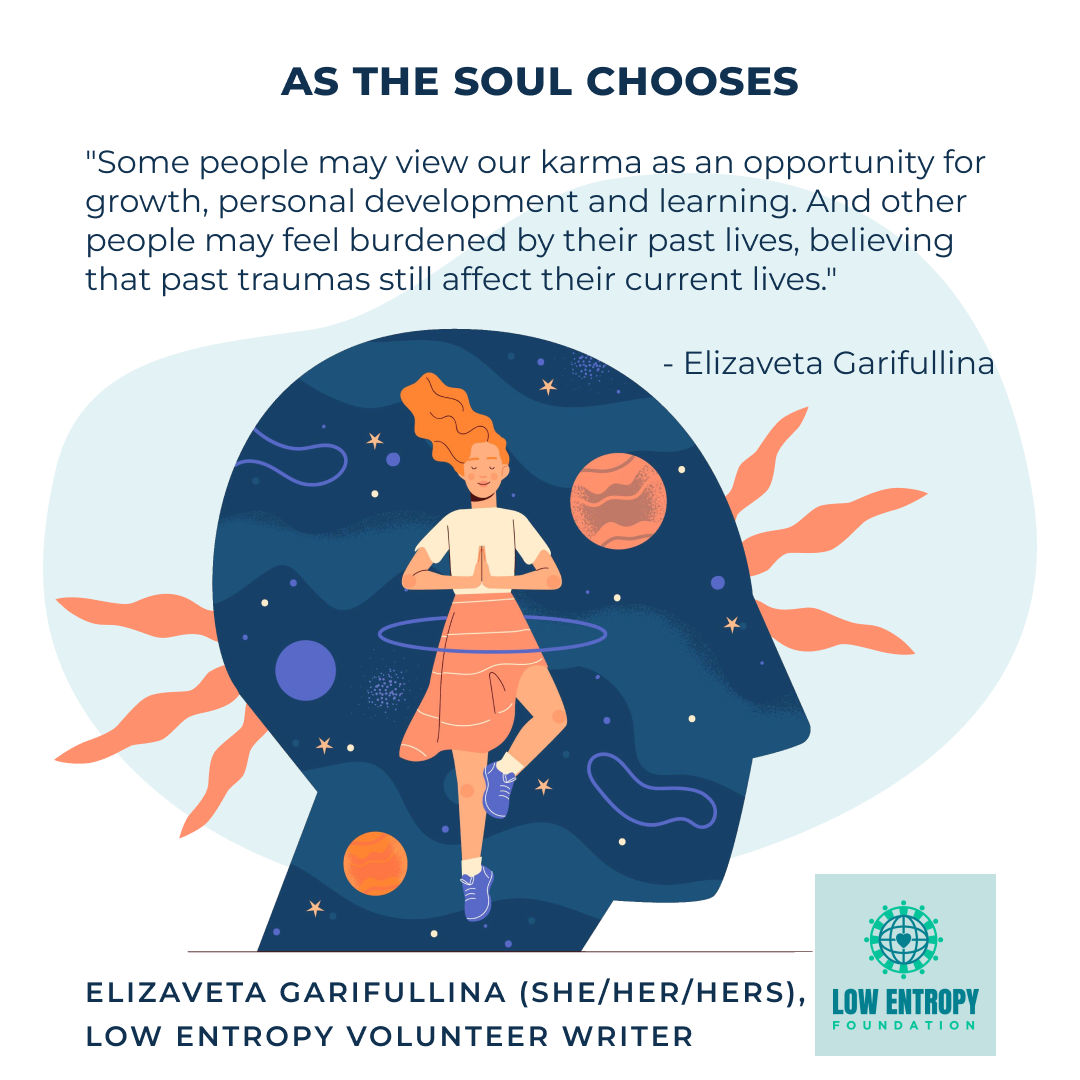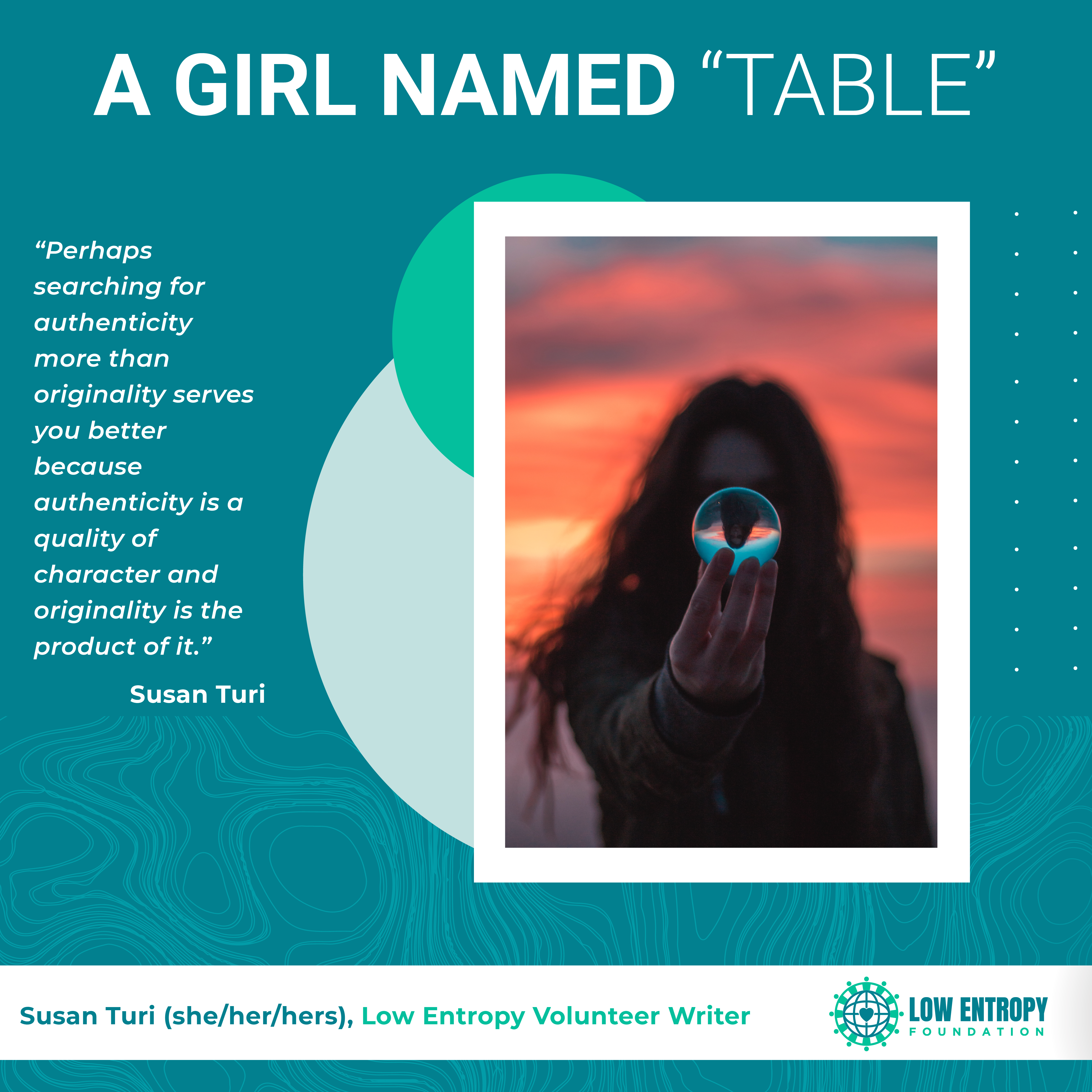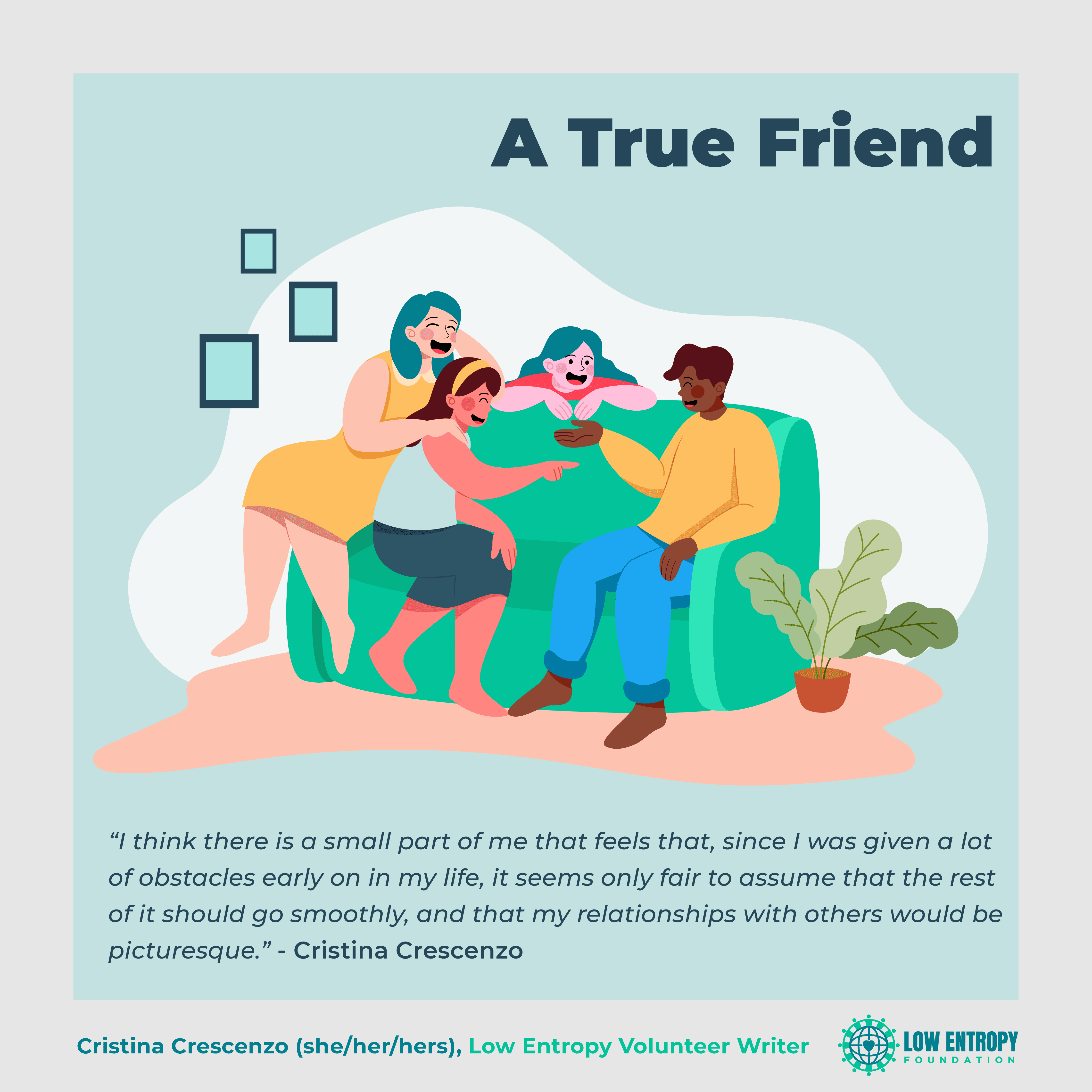Cassandra Di Lalla (she/her/hers), Low Entropy Volunteer Writer
Life is a true gift. To be lucky and blessed enough to witness beautiful birds chirping. To be given the chance to witness nature’s blanket, the rain. To breathe the breath of God’s limitless love as each day passes. To have a voice that projects the beauty we have within. To reach for the sky and float on a cloud just by closing your eyes for one single second. The comfort in knowing that you are able to create your own holistic heaven right here on Earth, by understanding and appreciating simplicity, and sourcing happiness from the ground up, or even finding your key to fulfillment from within. Harmony and peace are handcrafted gifts rooted from thyself.
Our heart lies safely in the cavity of our chests . . . pumping blood and beating to remind us that we’re alive. The cavity of our very existence is at the hands of everyone around us, lying in the centre of this universe on Earth. We are reminded every day that its protection, or lack of protection, is at the hands of those surrounding us, because their existence is also planted at the Earth’s centre. Life is a heartbeat.
A life is precious, and each one is unique. Even if we go through great lengths and write a lifelong list of why we defy all the odds . . . our worth cannot be defined simply by reassuring ourselves that we’re enough.
The first sign of life is as refreshing as a rainfall on the driest of pavements. When you look at a puddle of water, you see what life looks like, because your reflection is staring back at you. When you step in a puddle, life’s giving you the extra H2O that we so often forget to give our bodies.
A new life is nothing other than an apparition learning the ropes in a new body by using:
- Eyes to see the beauty of the world
- Hands to open up the doors to kindness
- Arms to embrace everything, before having to let it free
- Legs to walk the path of peace
- Feet to stay planted on Earth and stay grounded, like seeds in a garden
- Lips to speak on our existential being
- Minds to process the power of our brains
- Hearts to love and feel loved
- Souls to seek serenity
The ownership of this body? Yours. The property manager? You. The tenant? Also you. Let it be known that with life comes responsibility, but with that comes a sense of accomplishment and achievement. Life in itself is worth celebrating, and there are endless reasons to celebrate.
Life can be catastrophic and disastrous, and it can be outrageous. Life is perfectly imperfect; it is beautifully flawed and it is sometimes a whimsical whirlwind, but in moments like those . . . you must remind yourself that we, as life’s ambassadors, know first-hand the true meaning of deception in the purest and most raw form, because we’ve seen it from the ground up. Quite literally, we’ve seen the leaves on a tree changing colours, the bark on a tree weakening, the branches falling off of trees or the roots dying and rotting away . . . yet the tree still stands through all four seasons.
A life is similar to that of a tree: our living cells; the blood in our veins; our need for oxygen, air and water; the way we become weak; the cycle of life as we know it; and the way we rot away and decay.
We are all creatures of nature and we are all masterpieces in our own art gallery. We are the blueprint of perfection . . . we are the humble humans behind our own stories.
A life, in essence, is many elements combined . . . in the form of humans, animals, the green kingdom of plants with the beautiful blossoming of flowers and all of nature’s other offerings encapsulated in our ecosystem.
A life with a beating heart is heaven on Earth. The focal point of life captures all aesthetics, and though we sometimes feel like a secret to society — we are, in the end, sentient and alive to thrive.
—
Cassandra Di Lalla lives life purposefully. She enjoys reading, writing and mental health initiatives. She’s an animal lover for life and an innovative individual always finding new ways to create.







